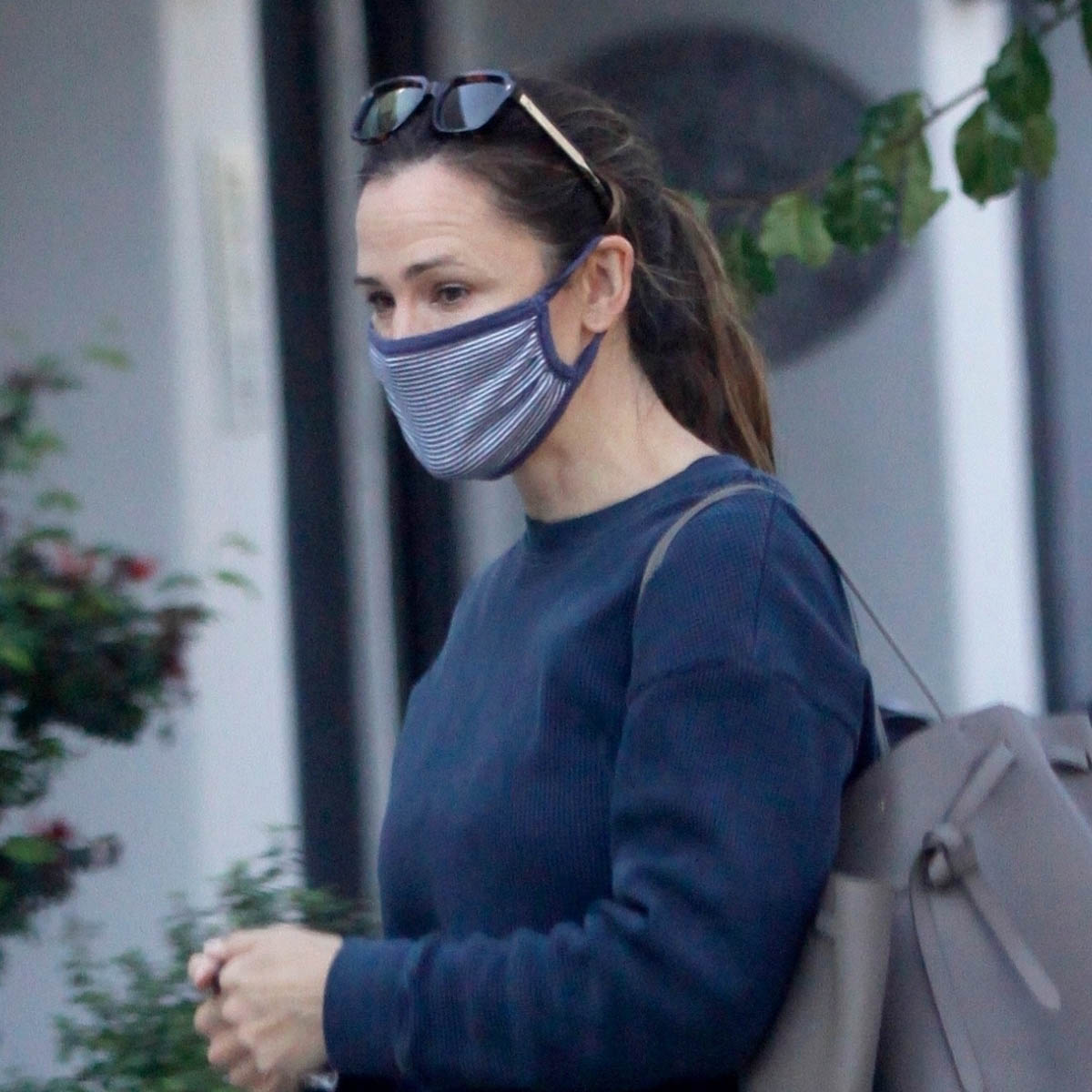Jennifer Garner Tells Us More



Jennifer Garner was on PBS’s Tell Me More with Kelly Corrigan this week (thanks to Anna for the heads up and the transcription) and as the title of the show suggests, this is a program where guests open up about …well… more. In Jennifer’s case, these are topics she might not be asked about when she’s promoting a television or a film project, and a program like this gives her the time to get deeper into the “more” she’s sharing. As posted on her Instagram, she talks about her parents, their background, what she learned from them.
I love the story she tells about her mother’s advice to her when she first moved to New York to act because it’s always about perspective. For Jen’s mom, who grew up in poverty on a farm in Oklahoma, no place that Jennifer would go and nothing she would do would feel as monumental as it was for her mother to leave the farm. Which wasn’t about diminishing Jen’s experience but more a comment on how the world used to be so much smaller. When Jen’s mom was young, living where she lived, the possibility of even travelling and relocating was certainly much more remote than the opportunities Jen was able to have – and in just one generation. I often feel the same way about my parents, who were born in Hong Kong, and what it must have been like to leave there and immigrate to Canada. The leap for them was bigger than any leap I’ve made or will ever make.
From that framework, Jen talks about her work with Save The Children and her personal insight into poverty and the impact it can have on kids – and on generations of kids and their families. Poverty is a cycle, and it keeps turning, it keeps harming, and while Jen’s mother was able to break the cycle she was in, too many people are not so fortunate.
During the interview, Jen also tells us more about self-care, specifically when asked how she’s managed the last few years and what she’s learned from her struggles and the programs that have helped her cope. Her response:
“If I could have done one thing... Gary Winick - he was the director of 13 Going on 30 and he was one of my closest friends, he died of brain cancer 9 years ago. He and I took a walk in Central Park forever ago. I mean, way before. He said, 'You need to be in Al-Anon. You're with someone who has this and whether he's sober right now or not, or whether it's an issue right now or not, you need to be in Al-Anon.' What I would give to have heard that wisdom and to have gone back and taken his advice.”
From there she’s asked about what she’s taken away from Al-Anon:
“Well, Al-Anon, it's just knowing what is your stuff to deal with and dealing with it, and knowing what your boundaries are and having them, and knowing what to leave alone and is none of your business.”
If you’ve had experience with a loved one who is an addict or who struggles with other mental illnesses, you might be able to relate to this – giving yourself permission to not take responsibility for another person, separating yourself from what they need to do for themselves. And of course, as Jen further elaborates, not losing yourself in their situation. Stopping the harmful self-talk that you could have done more, that you could do better for them.
“No, I don't have that temptation! But it's not about the addict, it's about you. It's about you and what you need to do to show up for yourself. And that changes the dance.”
What she’s saying, obviously, is from experience – such an important piece to the ongoing conversations about addiction and mental health and caregivers, because if there is an addict in your life, you will, at times, become a caregiver, both to the addict and often to the other people who feel the impact of the addiction, like children, for whom you are already giving care, and this represents an additional layer to what’s already a huge lift. This is why Al-Anon exists but beyond that, our collective awareness and support for those in the orbit of addiction needs to be expanded. And one of those ways is to open up avenues for them/us to be able to talk about how it is for caregivers and loved ones too.
A few years ago, there was someone in my life who was in crisis and I had to pause this site for a day or two in order to help out. Later on, I wrote about what our immediate friend and family circle was experiencing as a result of this disease and I received a note from someone I’ll never forget that basically amounted to “you’re offside for talking about someone else’s addiction”. While I totally understand the sensitivities involved (the person with the addiction remained anonymous), other lives are profoundly affected by addiction beyond the addict’s – and just as there should be no shame for addicts to talk about their disease, we need to find a similar outlet for those affected by addiction to share their experiences too.
For Jennifer Garner, there is of course the added complication of being a public person who co-parents with another public person so it’s a delicate balance. The way she’s handled it here is excellent. Click here to watch the full interview with Kelly Corrigan. Thanks again, Anna!




